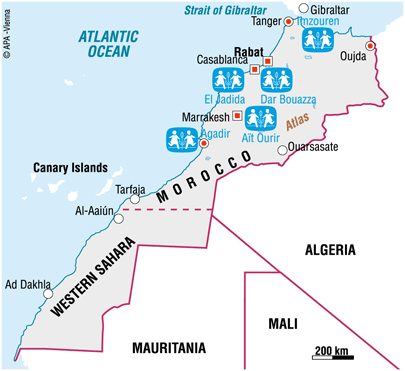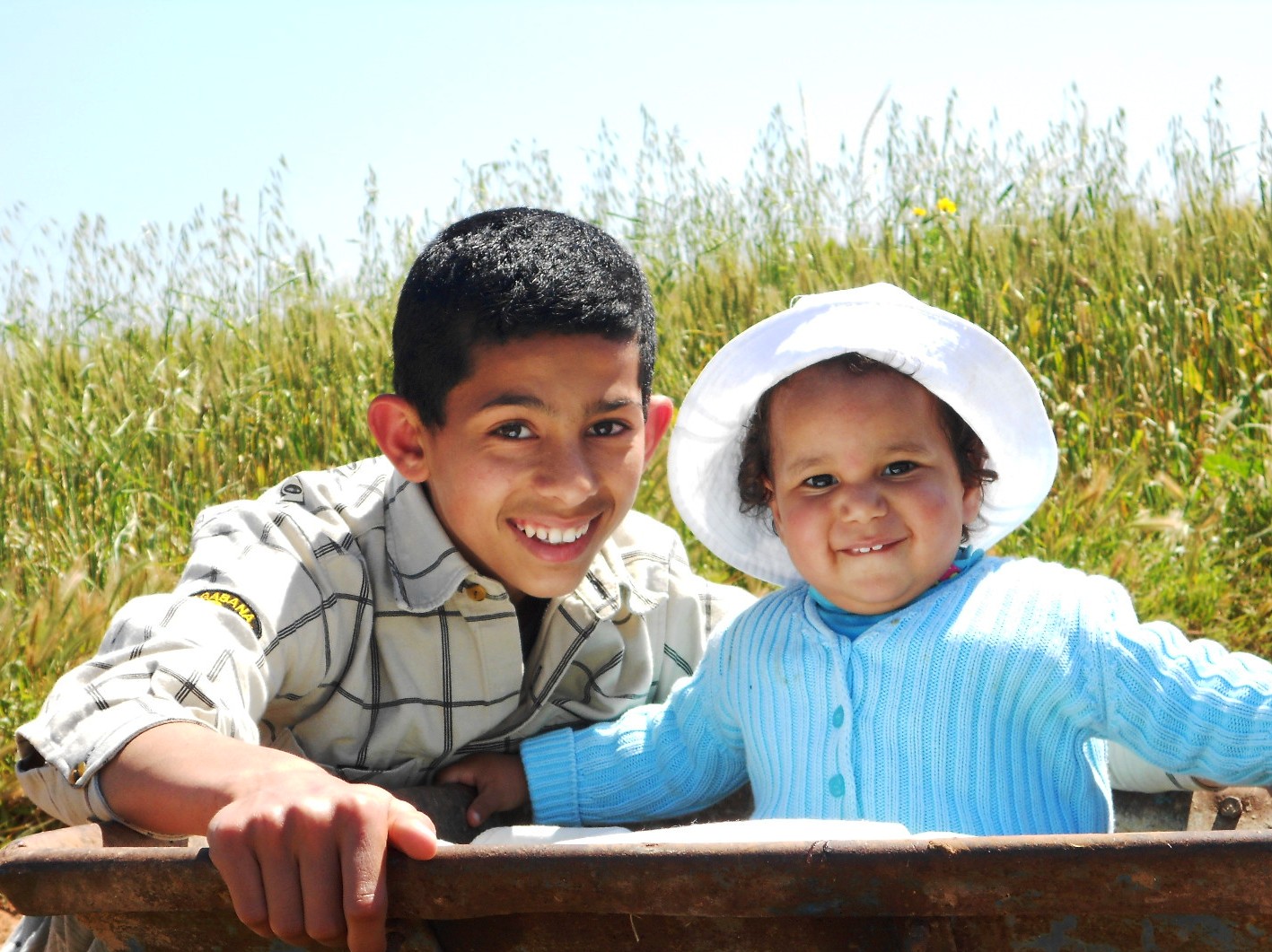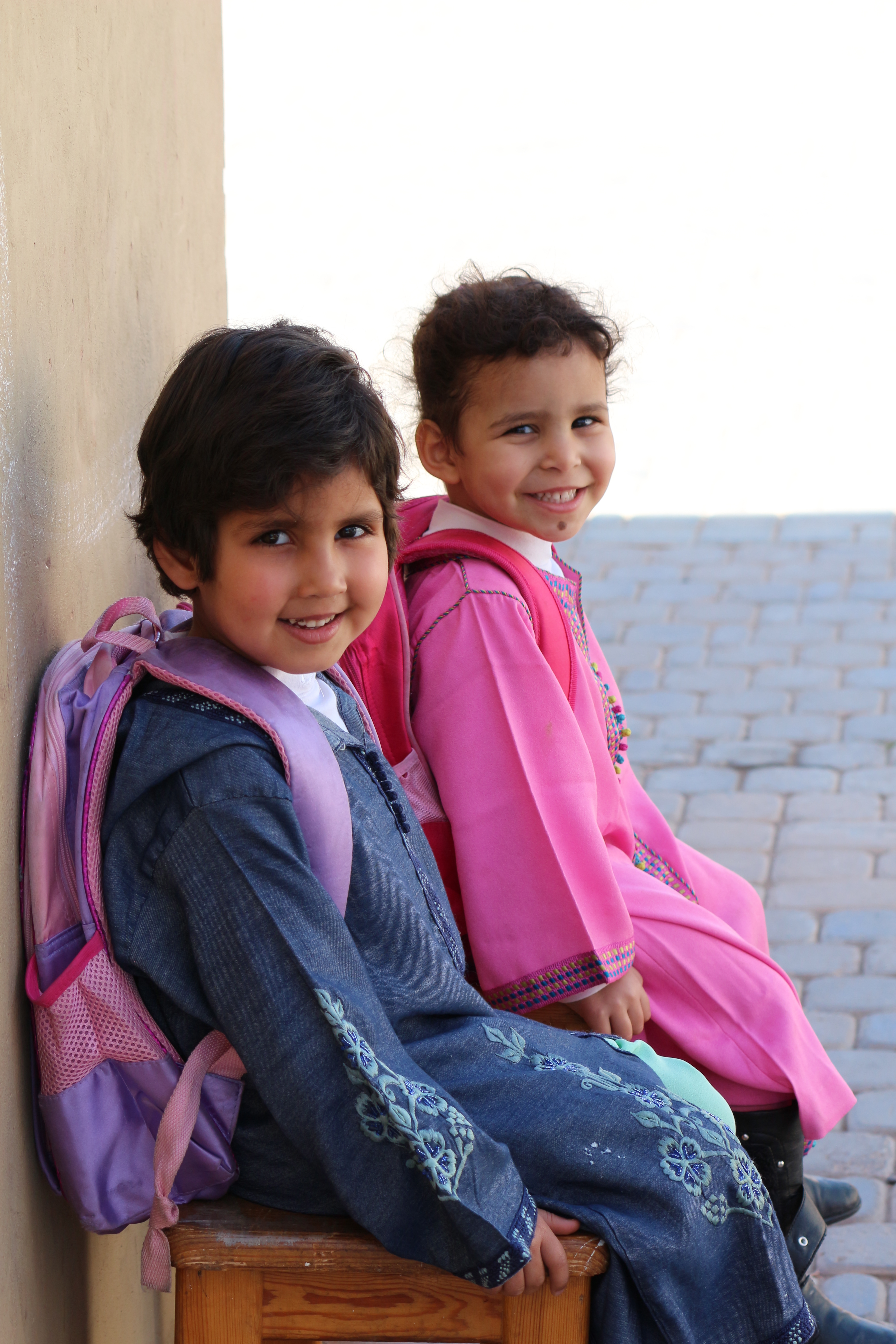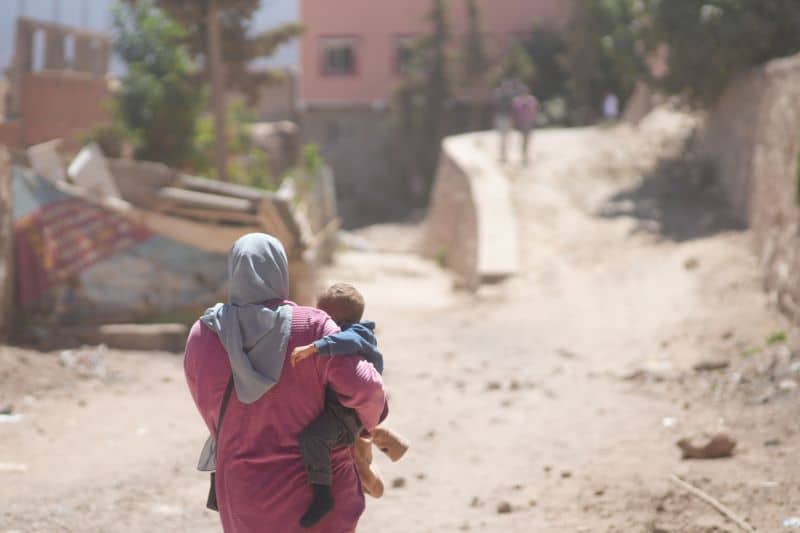
Vi er i Morocco
A country shaped by its proximity to Europe
-003.jpg?width=800)
Morocco is a constitutional monarchy located in North Africa. The country is governed by an elected government, with the King holding major executive power. The country's capital is Rabat, although Casablanca continues to be the largest Moroccan city. For many years, Morocco was subject of rivalries between European powers.
The Spanish occupied the country's northern part in 1860. Only around five decades later, in 1912, the French gained control over vast parts of the country. That same year, the "Treaty of Fez" was signed and Morocco thus divided into a French and Spanish protectorate until it finally gained full independence and sovereignty in 1956. Morocco experienced devastating terrorist attacks in 2003 and again in 2011 when a bomb exploded at a tourist café in Marrakesh, killing 17 people.
Economically, it benefits from low labour costs and its proximity to Europe. The country is one of the largest exporters of phosphate, a raw material that has secured economic stability over many years. In 2011, thousands of Moroccans protested in the streets of the country's major cities, demanding greater civil liberties and democratic reforms. Some reforms have taken place but there have been calls for further changes.
Poverty remains high in rural parts of Morocco
Although not to the same extent as in many of Africa's Sub-Saharan countries, poverty in Morocco does exist. It is predominantly a rural phenomenon. Tens of thousands in rural and semi-rural parts of Morocco remain without access to potable water, decent housing, sanitation or medical assistance. Over the last years, there have been noticeable improvements in terms of human development but the gap between urban and rural areas has widened.
Although the human rights situation in Morocco has improved over recent years, freedom of the press is still limited. Today, the country ranks 130th in the UN’s Human Development Index. Recent constitutional reforms have improved provisions on human rights, e.g. by criminalising torture and arbitrary detention, strengthening judicial independence and guaranteeing fair trial rights. However, further reforms are needed to ensure that these provisions are indeed implemented.
Children are at risk of exploitation
-004-(2).jpg?width=800)
In Morocco, nearly 30 per cent of the population are less than 14 years old. Many children are affected by rising levels of poverty and child neglect. Over recent years, the country has introduced a number of campaigns to tackle the problem of child labour. Nonetheless, thousands of children continue to be subjected to exploitative practices.
While boys traditionally work in agriculture, girls are often forced into domestic servitude in exchange for money. Many girls experience sexual and physical abuse and are not allowed to leave the house. The majority of working children do not receive an education. Without an education, many of these children will face grave difficulties once they become adults.
SOS Children's Villages in Morocco
At present, SOS Children's Villages is supporting families, young people and children in Morocco in five different locations.
Strengthening families: The SOS Family Strengthening Programmes aim to strengthen existing family ties and to enable children who are at risk of losing the care of their family to grow within a caring family environment. In 2014, we assisted 666 children from 274 families.
Family-based care: Children who have lost parental care can find a home in SOS families. Brothers and sisters grow up together and receive all the support they need. Children go to local schools and take part in neighbourhood activities which ensures that they are well integrated into the community. We also assist local foster families who can care for children as they grow older.
Support for young adults: Our SOS Youth Programmes provide young people with support until they are able to live independently. Great attention is paid to ensure they receive the right kind of education and training so that they can get a job.
Website of SOS Children's Villages Morocco
(available in French)

